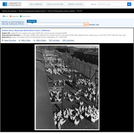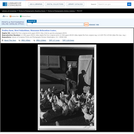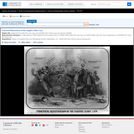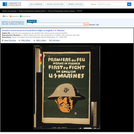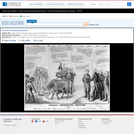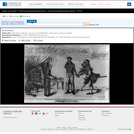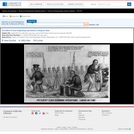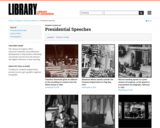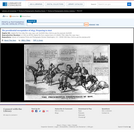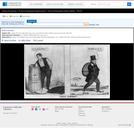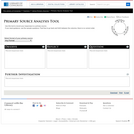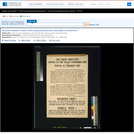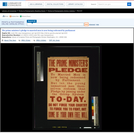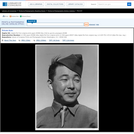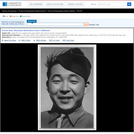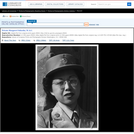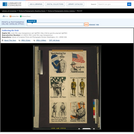Once again Polk's handling of the Oregon territorial dispute between the United States and Great Britain is criticized. (See "Polk's Dream" and "War! or No War!" nos. 1846-2 and 1846-4). Here the artist seems to suggest political motivation behind Polk's insistence on the 54.40 parallel as the northern boundary to American territory. At the 54.40 line, two small boys bait "Donkey" Polk with a "Re-election" cabbage. The boy holding the cabbage comments, "Come here Jem, here's a animal as sees something and wont move no how you can fix it!" His friend encourages him to "Coax along with a cabbage Bill, if that wont move him put a locofoco match under his nose!" "Loco Foco" was a type of match as well as a nickname for radical Democrats of the time. Polk exclaims, "Here I am by the order or masters of the Baltimore Convention, with my nose down to this line and here I shall stick, though I fall a martyr to my devotion to the great Democratic party!" The Baltimore Convention of 1844, which nominated Polk for the presidency, also wedded the party's platform to the 54.40 parallel on the Oregon question. Three groups of men surround Polk. To the left stand the "Whig Members" of Congress, one of whom says to the expansionist Democrats in the center, "Take your own course, gentlemen, with your own animal! He is a sorry one at best, and won't be worth a copper after you've got him out of that fit. Its nothing more nor less than the blind staggers!" Lewis Cass and Ohio senators William Allen and Edward Hannegan stand in the center group behind Polk. Cass, in military uniform, says, "It's my opinion, Hannegan, that he's going to back out! His nose is not so near the line by three inches as it was a week ago!" Allen begs of Cass, "Oh don't let him flinch General. It's our only hope!" Hannegan says, "By heaven! it cannot be General! If he does he's worse than a second Arnold. We must be ready to cut him down at once! Let me have your sword?" The third group (far right) stands at the forty-ninth parallel. It includes more conservative Democrats (left to right) John Clayton, John Calhoun, Thomas Hart Benton, and William Henry Haywood, Jr. (labeled "Hayward"). Clayton inquires, "How shall we get him off? He has not budged or brayed for the last month!" John Calhoun remarks, "I see how it is gentlemen! He has got it into his head that to be great is to be silent and obstinate! Coaxing will be of no use! You might as well use force at once!" Benton adds, "In my opinion it's a very miserable imitation of old Hickory's firmness and independence." Haywood assures everyone, "I, gentlemen, am the only man in the field that knows when that jackass is going to move."|Entered . . . 1846 by J. Baillie.|Lith & pub. by James Baillie, 118, Nassau St. N.Y.|Signed with monogram: C (Edward Williams Clay).|The Library's impression was deposited for copyright on April 8, 1946, on the same day as "Polk's Dream,"also by Clay.|Title appears as it is written on the item.|Davison, no. 192.|Weitenkampf, p. 85.|Forms part of: American cartoon print filing series (Library of Congress)|Published in: American political prints, 1766-1876 / Bernard F. Reilly. Boston : G.K. Hall, 1991, entry 1846-3.
![Potatoe, [i.e., Potato] Fields, Manzanar Relocation Center](https://img.oercommons.org/160x134/oercommons/media/upload/materials/screenshots/materials-course-73475.png)
![Potatoe, [i.e., Potato] Fields, Manzanar Relocation Center](https://img.oercommons.org/160x134/oercommons/media/upload/materials/screenshots/materials-course-73476.png)
